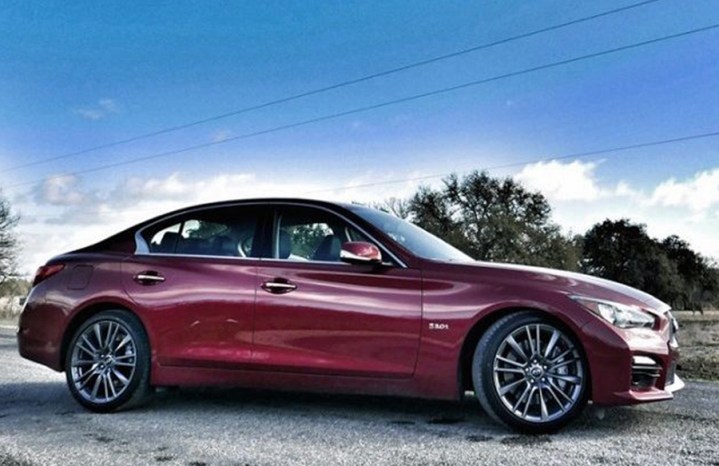
No accidents or injuries have been reported as arising because of the steering control problem, but the company will start contacting owners this month to bring their Q50s to the closest dealer. Again Nissan did not say exactly what would happen at the dealers, but since the problem stems from a software problem, the most likely assumption is a software update.
The issue involves steering in autonomous mode and could result in slower than normal response and reduced control. The autonomous feature, called direct adaptive steering, is supposed to make driving easier by handling minor corrections during highway driving.
This isn’t the first time the Infiniti Q50’s direct adaptive steering has been recalled for a software issue. In late 2013, shortly after steering-by-wire was introduced, there was also an issue. With today’s emphasis on autonomous driving features, the Q50’s related capabilities put it easily in top 10 lists of vehicles with such features.
The Infiniti’s has limited level 3 autonomy — meaning the car can almost drive itself in special circumstances, usually highway driving, though the driver needs to be in the seat, awake, and ready to take over if needed.
If steering is compromised, or even if drivers don’t feel they can trust the self-driving feature, it has the potential to reflect on the whole field of self-driving cars. Carmakers, government agencies, and even insurance companies are in favor of advancing autonomous automobiles for safety reasons alone. Consumers, however, are less enthusiastic. Any autonomous vehicle system component that is compromised slows down consumer comfort with the overall concept.
Approximately 60,000 vehicles will be recalled, included those sold in all markets worldwide. Of that number, 28,182 are in the U.S., 3,804 in Canada, and 6,894 in China.



